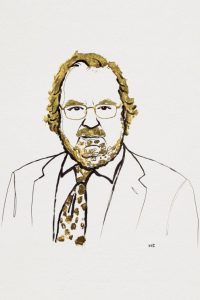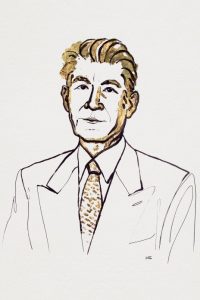The Nobel Assembly at Karolinska Institute has decided today to award the 2018 Nobel Prize in Physiology or Medicine jointly to James P. Allison and Tasuku Honjo for their game-changing discovery of cancer therapy by inhibition of negative immune regulation.
The Nobel Prize in Physiology or Medicine was awarded on Monday the 1st of October 2018 to James P. Allison of the United States and Tasuku Honjo of Japan for their work on unleashing the body’s immune system to attack cancer. Before their discoveries, cancer treatment consisted of surgery, radiation, chemotherapy and hormonal treatments.
A statement from the Nobel committee hailed their accomplishments as establishing “an entirely new principle for cancer therapy”.
“The seminal discoveries by the two laureates constitutes a landmark in our fight against cancer,” the Nobel Assembly at Sweden’s Karolinska Institute said as it awarded the prize of nine million Swedish crowns ($1 million).
“Allison and Honjo showed how different strategies for inhibiting the brakes on the immune system can be used in the treatment of cancer,” they added.
The treatments or “immune checkpoint therapy” have fundamentally changed the outcome for certain groups of patients with advanced cancer. Their work has led to dramatically improved therapies for cancers such as melanoma and lung cancer, which had previously been extremely difficult to treat.

James P. Allison, PhD
Professor and Chair, Department of Immunology; Director, Immunology Platform, and Deputy Director, David H. Koch Center for Applied Research in Genitourinary Cancers, Department of Genitourinary Research, University of Texas MD Anderson Cancer Center, Houston, Texas.

Tasuku Honjo
Born in Kyoto, Japan in January 27, 1942
Tyoto University Graduate School of Medicine Kyoto, Japan. Professor Department of Immunology and Genomic.
In a telephone interview, Dr. Allison said that when checkpoint inhibitors work, patients “are good to go for a decade a more.” He said he was working with other researchers, including his wife, Dr. Padmanee Sharma, an oncologist at MD Anderson, to understand the mechanisms so the treatments would help more patients,
“When I’m thanked by patients who recover, I truly feel the significance of our research,” Dr. Honjo said during a news conference at the Japanese university, according to Japanese news reports. He added “I’d like to continue researching cancer for a while so that this immunotherapy will help save more cancer patients than ever before.”
“It’s a big challenge,” Dr. Allison said. “But we know the basic rules now. It’s just a matter of more hard work to put things together based on science.”
For Further Reading (Source): Click Here
Author: Ghada EL-shatiti
Revised and edited by: Hadil Elafi

